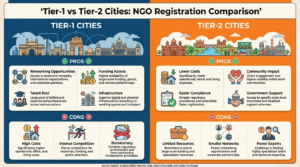As an American citizen, you enjoy certain rights and freedoms. These rights are thanks to the Constitution and form the foundation of your citizenship. These rights have been hard-fought and are very near and dear to the American spirit.
They are what separates America from the rest of the world, and make up the backbone of American culture. The Bill of Rights is one of the most important declarations in the world and something every American citizen should be familiar with.
However, along with these rights come responsibilities that contribute to the well-being of society and ensure the functioning of a democratic nation. Understanding and embracing both your rights and responsibilities is crucial for active citizenship.
It is essential for the preservation of a just and inclusive society.
What do you need to know about the rights and responsibilities of a US citizen? What does it mean to be a true member of the United States of America? Read on and we’ll walk you through what you need to know.
The Rights of an American Citizen
One thing that separates America from much of the rest of the world is a steadfast commitment to the rights of the individual. Many American citizens hold these rights near and dear. Often, much of the internal conflict in the country has to do with the protection of these rights.
What are these rights? There are numerous that you’ll want to be familiar with.
Freedom of Speech
Freedom of speech is the right to express one’s opinions without censorship or restraint. It is one of the most fundamental rights in the United States, guaranteed by the First Amendment to the Constitution.
The First Amendment states that “Congress shall make no law… abridging the freedom of speech, or of the press.” This means that the government cannot pass laws that restrict what people can say or write.
Freedom of speech is important for a number of reasons. It allows people to express their opinions and ideas, even if those opinions are unpopular. It also allows people to criticize the government and hold it accountable. Freedom of speech is essential for a healthy democracy.
There are some limits to freedom of speech. For example, the government can restrict speech considered to be a threat to national security or that is likely to incite violence. However, these limits are narrowly defined and the government must justify them.
Here are some examples of what’s protected thanks to freedom of speech:
- The right to criticize the government
- The right to express unpopular opinions
- The right to protest
- The right to assemble peacefully
- The right to petition the government for a redress of grievances
Here are some examples of what is not protected by freedom of speech:
- Obscenity
- Defamation
- Fighting words
- True threats
- Child pornography
- Incitement to imminent lawless action
Freedom of speech is a complex issue, and there are many different interpretations of what it means.
However, it is clear that freedom of speech is a fundamental right in the United States, and it is essential for a healthy democracy.
Right to Vote
The right to vote is the right of citizens to participate in elections by casting a ballot for a candidate or proposition.
It is one of the most fundamental rights in a democracy, as it allows citizens to have a say in who represents them and what policies come about.
The right to vote is not absolute, and there are some restrictions on who can vote. In the United States, for example, only citizens are eligible to vote, and felons may lose voting rights depending on the state in which they live.
However, these restrictions are generally narrow and are there to protect the integrity of the electoral process.
When citizens are able to participate in the political process, they are more likely to feel that they have a stake in their government.
There are a number of ways to protect the right to vote. One way is to make it easier for people to register to vote and to vote.
This can be done by expanding early voting and absentee voting, and by making it easier to register to vote online or by mail.
Another way to protect the right to vote is to ensure that elections are fair and that there is no voter suppression. This can be done by monitoring elections for irregularities and by enforcing laws that prohibit voter suppression.
The right to vote is a fundamental right, and it is essential for a healthy democracy.
Freedom of Religion
Freedom of religion is the right of individuals to hold and express their religious beliefs without government interference. It is a fundamental human right that is enshrined in the Bill of Rights.
The right to freedom of religion includes the right to:
- Choose one’s own religion or belief
- Change one’s religion or belief
- Practice one’s religion or belief in public and in private
- Teach one’s religion or belief to others
- Establish and maintain religious institutions
- Obtain religious materials
- Receive religious education
- Be free from religious discrimination
Freedom of religion is important for a number of reasons. It allows people to live according to their conscience and to find meaning and purpose in life. It also promotes tolerance and understanding between different religious groups.
There are a number of challenges to freedom of religion around the world. Some governments restrict religious freedom by imposing restrictions on religious practices, such as building or maintaining places of worship, or by refusing to recognize religious groups.
In some cases, governments persecute religious minorities, leading to violence and human rights abuses.
That’s why the American right to Freedom of Religion is so important.
Right to Equality
The right to equality is a fundamental human right that is enshrined in the United States Constitution.
The Fourteenth Amendment to the Constitution guarantees that “no state shall make or enforce any law which shall abridge the privileges or immunities of citizens of the United States; nor shall any state deprive any person of life, liberty, or property, without due process of law; nor deny to any person within its jurisdiction the equal protection of the laws.”
The right to equality means that all people are entitled to the same rights and opportunities, regardless of their race, religion, sex, national origin, or other characteristics.
This means that people should not be discriminated against because of who they are or where they come from.
Rights Against Unfair Taxation
Americans have a number of rights when it comes to taxes. These rights are protected by the United States Constitution and by federal and state laws.
Some of the most important rights that Americans have when it comes to taxes include:
- The right to be informed about the tax laws.
- The right to be treated fairly by the IRS.
- The right to appeal a tax assessment.
- The right to confidentiality.
- The right to due process of law.
Americans also have a number of other rights when it comes to taxes, such as the right to:
- Deduct certain expenses from their taxable income.
- Claim credits against their tax liability.
- Receive tax refunds.
- Negotiate a payment plan with the IRS if they cannot afford to pay their taxes in full.
If you believe that you’ve had your tax rights violated, you can file a complaint with the IRS. You can also contact a tax attorney or accountant for help. You can read this page on tax settlement if you’re curious about taxation in the United States.
Responsibilities of an American Citizen
We now understand the US laws and rights that help to make American life what it is. However, in order to maintain a functioning society, American citizens also have a number of responsibilities.
It is only through the upholding of these responsibilities that true order and harmony can come about.
Voting and Civic Engagement
Civic engagement is the participation of citizens in politics, governance, and community affairs. It is a fundamental right and responsibility of all Americans.
There are many reasons why civic engagement is important. First, it helps to ensure that our government is responsive to the needs of the people. When citizens are engaged, they are more likely to make their voices heard and to hold their elected officials accountable.
Second, civic engagement helps to build strong communities. When people get involved in their communities, they are more likely to know their neighbors, to trust each other, and work together to solve problems.
Third, civic engagement helps to promote democracy. The more informed people are, the better they can help build a strong society.
Civic engagement is a responsibility that all Americans share. By getting involved, we can make our communities stronger, our government more responsive, and our democracy more vibrant.
Respect for the Law
Respect for the law is a fundamental American value.
It is the foundation of our democracy and our way of life. When we respect the law, we are upholding the values of fairness, justice, and equality. We are also ensuring that our society is safe and orderly.
There are many ways to show respect for the law. We can obey the law, even when we don’t agree with it.
We can report crimes when we see them. We can support law enforcement officers. We can educate ourselves about the law. And we can teach our children about the importance of respecting the law.
Rights and Responsibilities in the United States of America
The US Constitution lays down certain rights and responsibilities that are inherent and essential to everyday life in the country. If you’re an American citizen, or hoping to become one, it’s important that you take the time to understand these rights and responsibilities.
They are the backbone of what makes the country function and gives it its identity.
Have more questions about politics and law? Keep scrolling through our blog for more.





Be First to Comment